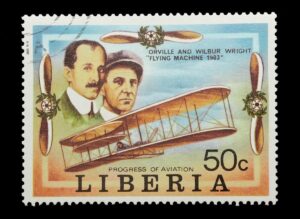3 Character Traits to Overcome Obstacles in Your Integration Business
 What started out as a dream to fly led to one of today’s most common forms of travel: the airplane. While overcoming business obstacles can often feel like defying gravity, the Wright brothers actually did – quite literally – as they made the first successful airplane flight in history in 1903.
What started out as a dream to fly led to one of today’s most common forms of travel: the airplane. While overcoming business obstacles can often feel like defying gravity, the Wright brothers actually did – quite literally – as they made the first successful airplane flight in history in 1903.
But this was not without adversity.
Their persistence and faith in the “impossible” can teach us a lot about meeting our goals, even in the face of stiff competition, naysayers, and doubters.
There were a number of critical traits which Wilbur and Orville displayed along their journey to the clouds.
Trait #1: They Were Brave Enough to Challenge the Status Quo
Even today, flying comes with risk. Considering Orville and Wilbur were among the first to take on such a feat says a lot about their level of bravery.
But, they knew what they wanted to accomplish, and they made a plan to get there.
Their early work was based heavily on the research of some of the brightest minds of their time, but after constructing models in accordance with the current research, they faced failure after failure. They knew something was amiss.
They began experimenting for themselves and challenged the current way of thinking. Consider for a moment that neither Wilbur nor Orville graduated high school. They were up against the clout of some of the most highly-respected, educated experts of their day, yet they still had the guts to suggest a different approach.
While it’s important to assess what those before you have done, you have to be brave enough to challenge the norm. While we should certainly build on the work of the people who went before us, we can’t be afraid to do the work and take on the role of trailblazer if we know there’s a better way.
The integration industry has seen massive changes, but this has created opportunities. In the last 5 years alone, we’ve watched a digital transformation take place before our eyes. Mergers and acquisitions have rattled the market and new technologies continue to emerge. Even the way in which customers interact with us has changed, demanding that we evolve too.
There are very valuable lessons in “the way you’ve always done things.” There are also valuable lessons in failure, both of your own, and of others in the industry.
Take a note from Wilbur and Orville and let what you learn drive new ideas about how you’ll achieve success in the future. Embarking on adding new product lines, learning new disciplines, and hiring new expertise all come with some amount of risk, but we have to be brave enough to embrace the change and overcome any obstacles in our way.
Trait #2: They Had Some Serious Grit
The Wright brothers faced disappointment after disappointment, and failure after failure, but they did not stop trying. The process in which the brothers underwent was grueling, and there were skeptics at every corner. They had very little support, and after years of failure, the brothers questioned their judgement, even doubting completely that a man would ever achieve flight.
But even after these moments of doubt, their grit and passion won out.
They became just as determined to learn what didn’t work. In fact, one could say they even intentionally invested in failure, because they knew if they just had the girt to keep trying, they would triumph. They built their own wind tunnel, conducting experiments to determine the best wing shape. They experienced countless failures, but even so, each wing model was an improvement from the last. Eventually they arrived at the perfect wing and used it to build their first glider with sufficient lift.
There’s no doubt we need grit in the integration industry. We face our own set of challenges. Take the early days of RMR, for example. Many in our industry embarked on their journey to add an RMR offering to their business without realizing the level of commitment it took. While there were failures, the successful integrators kept seeking out the right resources to succeed, whether that meant figuring out how to bundle their services solutions and supplies, attracting and hiring the necessary talent, or leveraging the right technologies – the dealers who had the grit to pick themselves up and try again did figure out the right formula for success – these are the same dealers who are thriving in this area today.
Trait #3: They Were Lifelong Learners
The Wright brothers stayed busy keeping up with scientific research and working on various mechanical endeavors, especially interested with the work of Otto Lilienthal, a German aviator. Newspapers were filled with descriptions of flying machines, and the two brothers had a natural curiosity about the subject.
As a result, the Wright brothers became self-taught engineers; their drive to learn was arguably one of the biggest reasons they were successful.
With curious minds, they were constantly expanding their skill sets. As evidenced by the wind tunnel they built when their first experimental gliders were not behaving in the way they expected, they knew they needed to understand why. With this mindset, they never let what they didn’t know get in the way of progress.
As business owners and employees within the integration industry, you understand how often this industry changes. It’s crucial to learn and grow to stay up-to-date on trends. Maybe it’s time to add a new services offering. Your customers have changed the way they seek out your products and services, causing a need to rethink your sales and marketing approach – are you seeking out sales or marketing development opportunities to help evolve your team? Or what about security or compliance matters? There is, and always will be, much to be learned in order to develop and maintain a sound security culture within your integration business. All of this requires an ongoing commitment to learning.
You’ll Prevail with a Plan and Some Faith in the Process
The foundations of success are rooted in the process – the times where you don’t throw in the towel, the moments where failure was rampant, the extra hours you spend checking every minute detail just to ensure you don’t have to go back – all lead to a single, glorious moment, where it all clicks.
Everyone in history who spurred change and innovation in this world went through this process. The famous Zig Ziglar saying holds more truth than we realize:
“There is no elevator to success, you have to take the stairs.”
It took several years for the U.S. Government to become interested in the work of the brothers, and before that, newspapers regarded their achievements as “not newsworthy.” The brothers were up against stiff competition with deeper pockets and higher degrees, but at the end of the day, it was their bravery, grit, and natural curiosity that kept them resilient and driven to overcome anything working against them.
Fortunately, it’s the journey “up the stairs” that counts – where the most valuable lessons are learned, the emptiest disappointments are experienced, and the greatest gratification felt once you’re finally able to take in the view.
This article comes from our partners at GreatAmerica Financial. Read the original story here – Lessons from Orville and Wilbur Wright
Learn more about the Solutions360 integration with GreatAmerica Financial
GreatAmerica and Solutions360 Integration Offers Integrators Easy-to-Quote Financing Options
Handpicked Related Content
-
Leading with Monthly Payment Options Provides Value in Any Economic State Working in technology for the last 16 years has given me an in-depth understanding of how monthly payment options impact end-users in need of new technology. The current economic…
-
How important is cash flow to your integration business? A blog post based upon The AV Profession podcast from AV Nation. Most integrators agree that having a backbone of solid cash flow is the lifeblood of an integration business. There…



